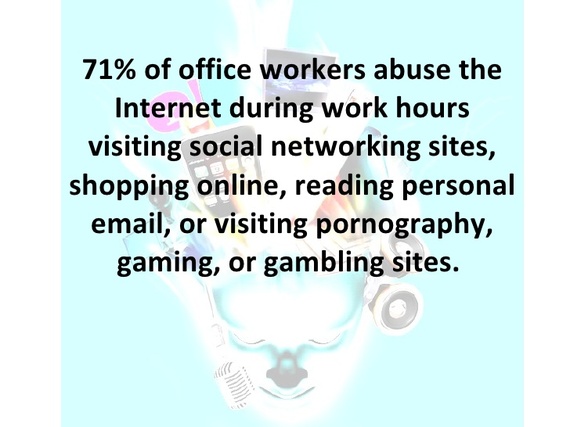It's extremely difficult to determine if the internet is a blessing or a curse. Although there are a lot of advantages of having constant access to the internet, the ills following the internet are still a cause of great concern.
When you hear about the causes and effects of internet addiction, it forces you to rethink the core purpose of the internet and if it is still being followed. The internet was created for our benefit.
Just like everything in life, you should always seek to find a balance when it comes to using the internet so that you don't defeat its purpose - to stay connected with others and get access to information that will help enrich our lives.
But you can't overlook the immense damage the wrong use of the internet causes. Since it is practically impossible to stay away from the internet these days, you need to know how to control your use of it. For this reason, it is important to identify how the internet hurts you and what you can do to stop it from happening.
1.Affects Social Skills
Prolonged use of the internet to connect with friends and family through chatting on social media can reduce your interpersonal skills. Even though chatting or emailing can help you stay connected with people who are far away, your ability to communicate with people face-to-face may start to decline. As a result your relationship with your family and friends in "real life" suffers.
One way to deal with this is to limit your use of social media or emails as a means of communication. Instead, insist on meeting face-to-face. You can participate in meetups and get to know people. With steady practice, you'll be able to easily interact with people "in real life".
2.Exposure To Vices
You can access absolutely anything on the internet; the good, the bad and the ugly irrespective of your age.
Moreover, a lot of infidelity is initiated through the web. In this article, David Joel Miller cited five ways the internet can destroy relationships, including, cyber flirting, cyber sec, internet created sexual affairs, etc. All these are vices which could hurt one's love life.
Among other things, it leads to mistrust between partners.
The fact is that many couples start out trusting each other. But when there is a breach of trust, especially in a case that has to do with infidelity; it leaves a huge dent in that couple's relationship. Such couples can be readily found snooping through each other's social media accounts, or even going as far as using a reverse phone lookup app to check if their partner is cheating on them.
Bullying was taken to the internet as well. Cyber bullying is one of the causes of depression and, in extreme cases, suicide.
If you have children, do not allow them to use the internet without your supervision. Keep an eye on the sites they visit and block out any possible inappropriate websites using a website blocking software or if you use Chrome, this Chrome extension. Be cautious of what you tell people online so that you do not fall a victim of cyber bullying.
3.Privacy Infringement
Some websites require you to provide personal information. They may ask for your name, date of birth and bank details, etc. or require you to upload a means of identification such as your driver's license or an identification card issued by the government of your country.
When such sites get hacked, your personal details either get sold to others or you run the risk of identity theft.
Almost all websites are susceptible to getting hacked. LinkedIn and Dropbox have been victims of hacking and their users were put in danger.
To prevent this from happening, observe any site that asks for your personal details to determine if it's trustworthy. You can run a quick search of the site on Google. Change your password at regular intervals to prevent hacking.
Do not be lax with how you share your private information like secret details about yourself or your life with people on the internet. The internet is not your personal diary. Don't fall for that bait no matter how attractive social media makes it seem. Secrets and vital information are meant to be kept. And if it must be online, triple check the security.
4.Reduced Productivity
The internet can be distracting and may prevent you from carrying out your normal activities. Compulsive chatting on social media and checking emails every minute can stop you from getting work done.
The internet, especially social media, is one of the causes of insomnia. Lack of sleep robs you of energy and decreases your concentration and all round productivity.
To solve this problem, if possible limit your internet usage to 1 to 2 hours a day. Don't have too many tabs open. This will help you stay focused. Commit to finishing the most important tasks first before using the internet. Stick to things that matter. You cannot afford to risk your job or fail in school because of some lousy tweets.
No one can reasonably ask you to stay away from the internet, but it is wisdom to moderate your use of it and change your views of the internet. It isn't suddenly a license to do what you wouldn't normally do or say what you won't normally say. Find who you are and let that person be consistent with your internet presence.


